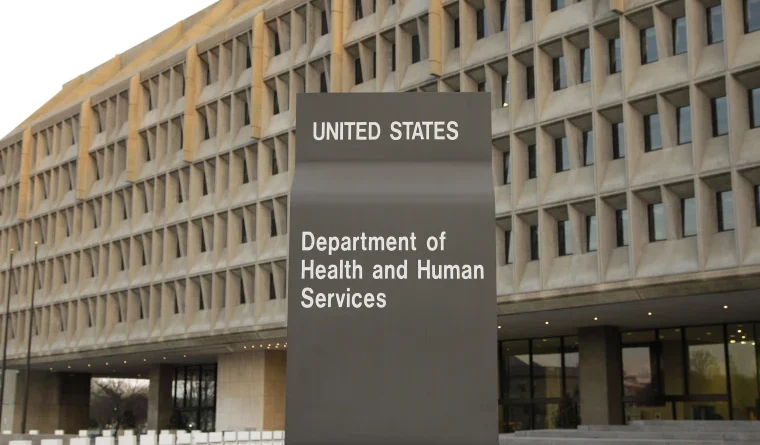Court Upholds Injunction Against Major HHS Restructuring
On September 17, a national appellate court made the decision to sustain an initial injunction against an effort to make massive changes to Health and Human Services (HHS), led by Secretary Robert F. Kennedy Jr., in line with the goals of the Trump administration. This came as a result of a legal action initiated in May by the attorneys general of 19 states, along with the District of Columbia. These parties took issue with the major overhaul planned for HHS, including staffing cuts and reconfigurations of numerous HHS components, because they were in violation of both U.S. Constitution and federal legislation.
The argument put forth by the Trump administration was met with opposition from a three-judge panel of the First U.S. Circuit Court of Appeals, centrally located in Boston. They refuted the administration’s claim that no immediate harm could be demonstrated by the states if the injunction were lifted pending a future appeal. It was highlighted by the panel that these judgments were based on extensive testimonies, running into hundreds of pages, presented by officials representing various states.
The federal court, via an unsigned decision, questioned the government’s failure to address how the original district court could have potentially erred in agreeing to these undisputed details. The proposed changes by Kennedy, announced in late March, aimed for a streamlined operation of federal functions. This was designed to be achieved through the consolidation of sub-agencies, reduction in regional offices, and the implementation of a strategy to lay off a significant chunk of the HHS workforce, numbering 10,000 employees.
Each of these employees was provided with buy-out options, serving as encouragement for their resignation preceding the expected job cuts. The main objective of Kennedy’s restructuring plan was to simplify, shrinking the existing 28 divisions down to 15. Additionally, it aimed to shut down five out of the current ten regional offices of the department.
Four sub-agencies comprising part of HHS were tagged for major changes as a part of the restructuring. These were the Centers for Disease Control and Prevention, the FDA’s Center for Tobacco Products, the Administration for Children and Families’ Office of Head Start, and the Office of the Assistant Secretary for Planning and Evaluation (ASPE).
Against these reorganizations, the attorneys general took their case to a federal court in Rhode Island. They articulated that such executive action was in violation of the Administrative Procedure Act and it crossed the boundaries of executive power as laid down by the U.S. Constitution. They alleged that it not only disregarded the doctrine of separation of powers but also contravened the appropriations clause.
The attorneys general argued remarkably about the prospective dangers that their states could encounter if the executive order were authorized. They proposed that the states’ agencies would be incapable of carrying out ample laboratory testing or processing vital health data. Such data would be crucial for monitoring infectious diseases and enhancing maternal and infant health outcomes.
Furthermore, the states’ attorneys general conveyed that the structural changes to HHS would culminate in significant financial repercussions. They claimed that it would place a burden on states to fill the void in funding, which would be created once resources are reluctantly pulled out at the federal level.
The Trump administration made the counter-argument that the case led by the states was fundamentally rooted in conjecture about the damages they would potentially incur due to alterations in the HHS services. The administration argued that any opposition to the proposed layoffs should be directly pursued by the affected federal employees.
They suggested that complaints about layoffs should be presented in front of the Merit Systems Protection Board. Yet in July, the District Court for the District of Columbia granted the initial injunction to the plaintiffs.
U.S. District Judge Melissa DuBose decreed that the present administration does not have the necessary legal authority to command, categorize, or execute wide-ranging changes to the structure and performance of the agencies that were formed via congressional decree.
Judge DuBose’s injunction commanded HHS to immediately halt its reduction-in-force and restructuring plans at the four named agencies. This move occurred in response to an appeal by the federal government, filed on August 12, seeking to temporarily lift the injunction while court proceedings were ongoing.
In the appeal, HHS argued that the lower court ruling ought to be overturned as the lawsuit mirrored two earlier cases where the U.S. Supreme Court had vacated orders that mandated the re-employment of workers previously dismissed en masse by the administration at other agencies.
But the foundational mandate of HHS, as stated on its official website, remains to “enhance the health and well-being of all Americans, by providing for effective health and human services and by nurturing lasting, significant progress in the fields of medical science, public health, and social services.” This objective encapsulates the core disagreement represented by this case, as it struggles between the fields of executive authority, judicial interpretation, and the potential impact on public health.

